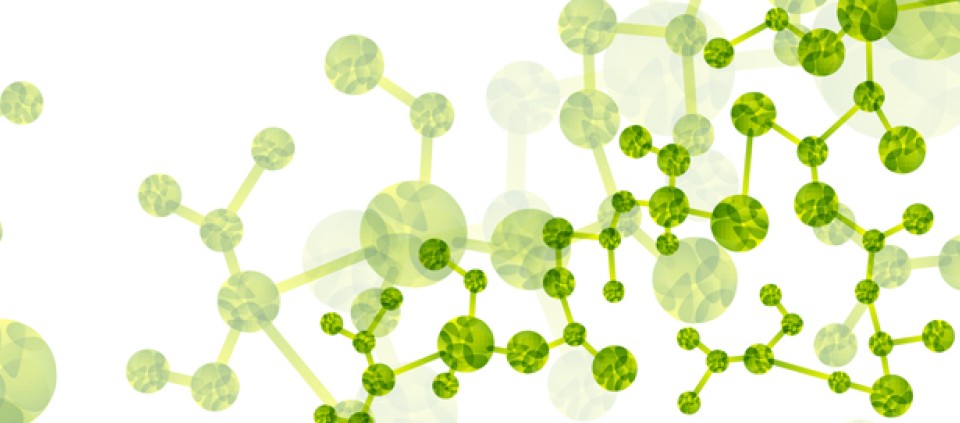Five Keys to Influencing Your Genes

In the conventional model of medicine, health is defined as the absence of disease. There’s certainly nothing wrong with that, but most of us want more.
“There’s a huge distance between that definition and a state of well-being, resilience, and vibrancy,” says Lisa B. Nelson, Director of Medical Education at Kripalu.
The more we learn about epigenetics (how genes are expressed, as opposed to how they are originally coded) and its relationship to chronic disease, the greater the incentive to make choices that lead to thriving.
“How we live and what we eat have the capacity to activate or inactivate genetic expression,” Lisa says. “We are in a constant process of creating and recreating our health.” She points to five key lifestyle areas that can influence our genes and our general state of being.
Food. Back in 1902, Thomas Edison wrote, “The doctor of the future will give no medicine, but will interest his patients in the care of the human frame, in diet and in the cause and prevention of disease.” It’s only in recent years that contemporary physicians have gotten on Edison’s bandwagon, redefining food as a source of healing, not just pure caloric power.
“Food is information that regulates our gene expression,” Lisa says. What we choose to ingest can affect our inflammatory response, carcinogen metabolism, hormone regulation, cell growth cycle, DNA repair, and dozens more subtle processes. [Some foods promote health; other foods derail it]. [Many researchers] believe we can draw a direct link between the increase in certain chronic diseases and the average American consumption of sugar (130 pounds each year).
Food choices can be calibrated (in a million different ways) for particular conditions and body types, but Lisa says that Michael Pollan’s three-sentence guide to a healthy diet is a good place to start: Eat food. Not too much. Mostly plants.
Exercise. Regular exercise has been correlated with the prevention of numerous disease states in every organ system, Lisa says, meaning it positively affects everything from heart disease and osteoporosis to anxiety and mild cognitive impairment.
What exactly is happening in the body when we exercise that causes all this good stuff? Beyond the basics—such as improving cardiac and respiratory function—that isn’t completely understood yet, Lisa says, but research backs up the results for conditions as diverse as depression and Alzheimer’s.
Yoga and meditation. "People have known for thousands of years that we feel better when we do yoga and meditate, and that it affects us deeply," says Lisa. "Now we know how deep it goes—all the way to our gene expression," according to a growing body of research. For example, one study enlisted older adults suffering from loneliness, a risk factor that has been linked to early mortality. Participants also showed pro-inflammatory gene expression, which researchers suggest may explain their greater vulnerability to disease. After an eight-week Mindfulness-Based Stress Reduction course, not only did participants report feeling less lonely, gene analysis showed that the inflammatory patterns had been reversed.
In another study, a group of caregivers for family members with dementia—a population that experiences chronic stress, as well as an increased risk for depression—practiced Kirtan Kriya, a yogic meditation from the Kundalini tradition, for 12 minutes a day over eight weeks. Again, blood samples showed reduced activity of the proteins linked to increased inflammation.
What's especially exciting about this research, Lisa says, is that it illustrates the potential for improving well-being and biomarkers in people who are already experiencing high levels of stress. "As a physician, I want to know that the people who need it the most will benefit, and this research is particularly promising in that direction."
Sleep. Sleep is “nature’s janitor,” Lisa says—cleaning out toxins and promoting repair while you’re resting. That might be the key to why it’s health-giving on so many levels: Recent sleep research shows that getting enough sleep is connected to a range of benefits, from preventing weight gain to decreasing the number of sick days you have to take.
How much is enough? Interestingly, eight hours might not be optimal. In a study that tracked 1.1 million men and women ages 30 to 102, those who slept seven hours a night on average had the best long-term survival rates.
Social connection. Feeling connected with others doesn’t just make you happier, it makes you healthier. A Duke University study found that low social support was linked to greater risk of coronary heart disease, while another study, published in the Journal of Clinical Oncology, found that social well-being in the first year after a cancer diagnosis improved both survival and risk of recurrence.
Lisa also cites a thought-provoking study indicating that gene activity is healthier in people who feel a sense of purpose and meaning in their lives versus those whose happiness is based on consumption and pleasure.
Bottom line: Why not make choices that not only feel good in the moment, but might also have long-term effects on our health? Lisa says, “We can’t fix everything, we can’t control everything, but we can maximize the incredible, beautiful processes we already have that allow us to be healing ourselves all the time.”
© Kripalu Center for Yoga & Health. All rights reserved. To request permission to reprint, please e-mail editor@kripalu.org.